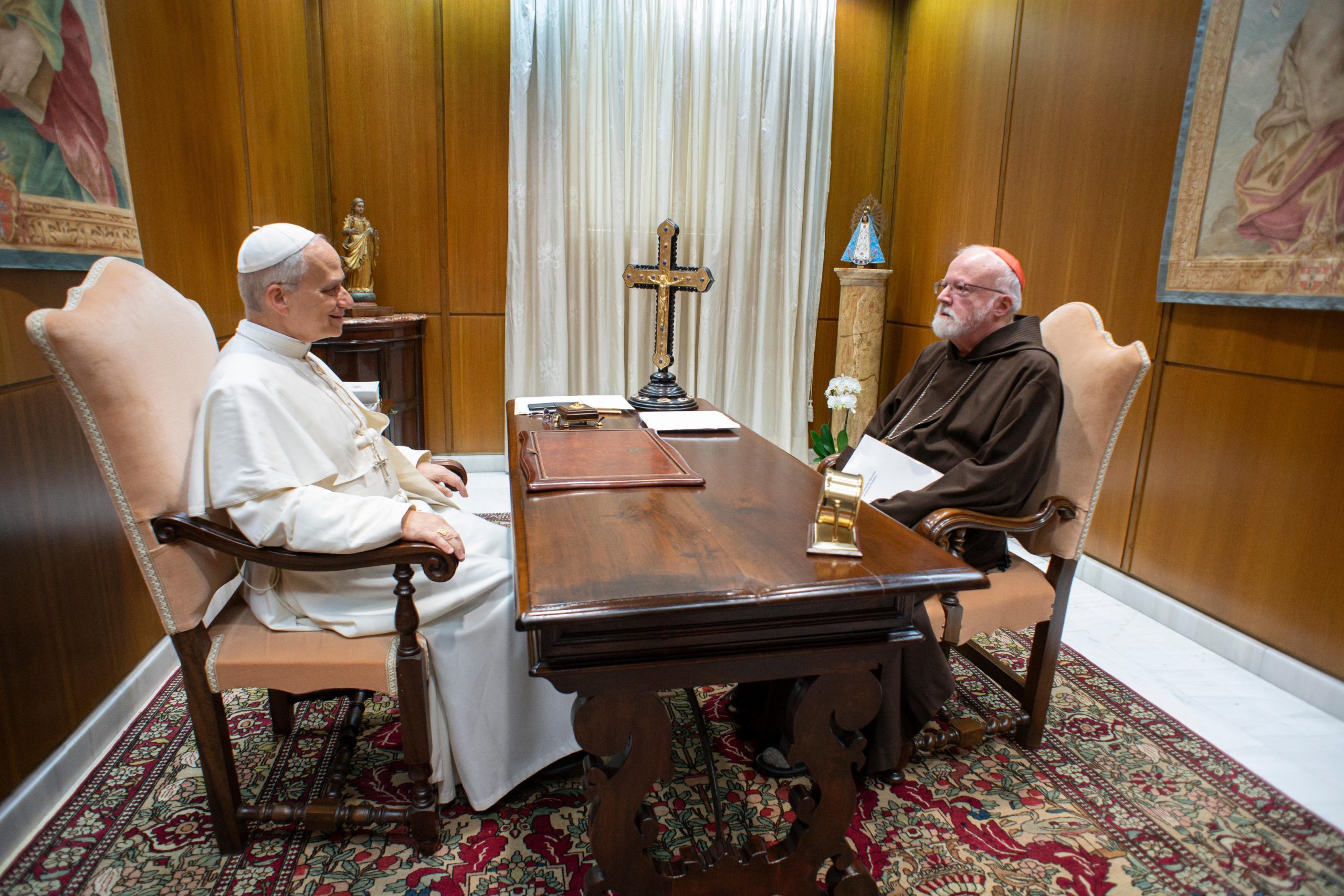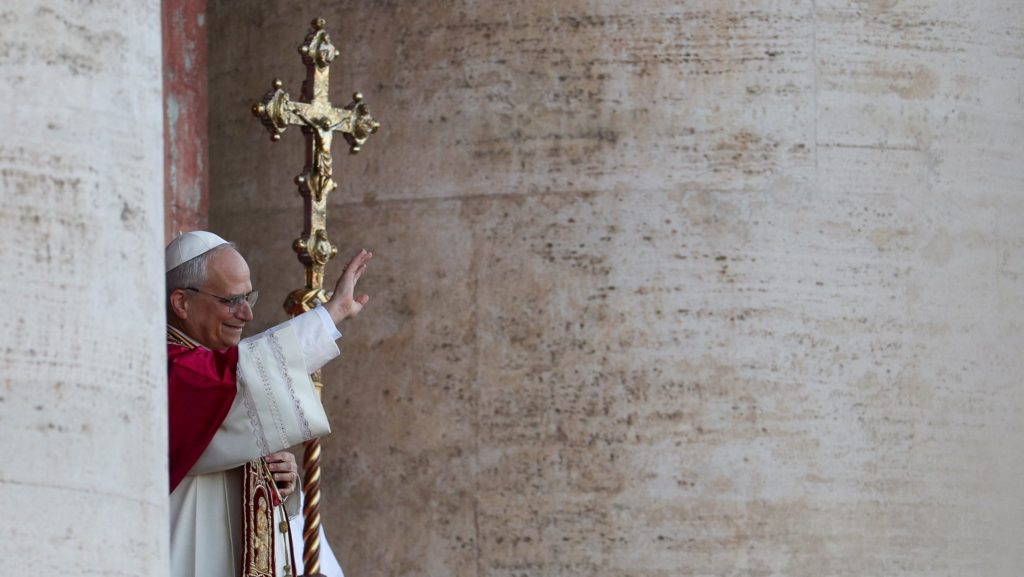ROME — As of this writing, Leo XIV has been pope for exactly three weeks. If one were to ask what’s changed from the previous regime, perhaps the best strategy is to fall back on the Sherlock Holmes rule of the dog that didn’t bark: sometimes it’s what doesn’t happen that’s even more revealing than what does.
In a word, the Catholic Church has had three weeks of calm: no bombshell revelations, no stunning gestures, no shocking inversions of tradition.
Consider what had already happened by this point in the embryonic Pope Francis pontificate in March 2013.
Francis had already spurned tradition by stepping out onto the central loggia of St. Peter’s Basilica dressed only in white, rejecting the usual sartorial flourishes. His appearance was so shocking that it triggered an urban legend that the new pontiff had said bitingly, “the carnival is finished” when vesting, understood as a rejection of the traditional liturgical impulses that had flourished under his predecessor Pope Benedict XVI. Stamping out that rumor was among the early headaches of his overwhelmed communications team.
During that first introduction to the world, Francis also launched into an unscripted greeting, which culminated in him asking the crowd to pray for him before he imparted his own blessing, a signal of further pastoral and theological surprises to come.
The new pontiff also had begun to emerge as a media sensation by returning the day after his election to the Domus Internationalis Paulus VI, the clerical residence where he stayed before the conclave, in order to pack his own bag and pay his own bill. He’d already delighted many and dismayed others by announcing that he would not reside in the traditional papal apartments in the Apostolic Palace, but would instead remain in the Casa Santa Marta, the $20 million hotel on Vatican grounds built under St. Pope John Paul II to house visiting dignitaries as well as cardinals during a conclave.
Francis also cheered public opinion but soured his own workforce by announcing that the usual “conclave bonus,” a paycheck supplement for Vatican workers who go into overdrive during a transition, would be canceled in order to promote a new environment of poverty and restraint. (This time around, for the record, Leo has opted to pay the bonus.)
Three weeks in, Francis had even managed to trigger a minor international incident by making a visit to the Vatican’s working parish, St. Anne’s, which is located right by one of the major entrances to the city-state. Seeing a crowd forming, the new pontiff plunged willy-nilly across the invisible border between the Vatican and Italy, thereby delighting onlookers and sending heart rates soaring among his security detail.
Collectively, all these improvisations and challenges to custom let the world know that this new pope would be a change agent, a provocateur who would challenge at least as many souls as he would comfort.
By way of contrast, the early days under Pope Leo XIV, history’s first American pontiff, have seemed remarkably pacific.
Yes, the new pope did return to his own residence in the Vatican’s Palace of the Holy Office to greet his neighbors, but there was no made-for-TV-scene of him wheeling his own luggage away. (In fact, there would have been no place to take it anyway, since Leo opted to remain in his old lodgings long enough for some long-delayed maintenance to be performed on the old papal apartments.)
In his various public appearances since his elections, Leo so far has demonstrated remarkable restraint, sticking almost entirely to his prepared texts and avoiding off-the-cuff pronouncements open to widely contrasting interpretations. During the homily for his inaugural Mass, for instance, he made exactly one on-the-fly adjustment, inserting the objective pronoun “us” after the phrase “Jesus taught” in an early passage.
(A striking notable exception to this discretion came when the pontiff received members of the Naples soccer team that had just won the Italian championship and appeared to deny media reports that he cheers for Roma, one of the two professional teams in the Eternal City. Yet that could just be him flashing a solid understanding of the difference between America and Italian where it comes to sports loyalties. Unlike in the States, in Italy, a follower of one squad is immediately styled as the mortal enemy of all the rest.)

Leo has moved quickly to address some of the unfinished business of the Francis era, including potentially sensitive meetings with fellow American Cardinal Seán O’Malley, president of the Pontifical Commission for the Protection of Minors, to discuss matters of sex abuse; the leadership of Opus Dei, to discuss a reform of the group launched but never completed under Francis; and Italian Cardinal Angelo Becciu, whose conviction in the Vatican’s “trial of the century” for financial crimes remains one of the more contested chapters of the late stages of the Francis pontificate, and whose exclusion from the recent conclave also generated controversy.
What’s striking is that while we know those meetings occurred, we know basically nothing about what transpired — there have been no sensational leaks, no surprise papal asides. Even the normally voluble Becciu was restricted to saying of his May 27 encounter, “It went well, but I can’t say anything.”
In terms of policy, we’re still at the Rorschach test stage of the papacy, in which people can project almost anything they want to see amid the early moves of a pope still feeling his way into his new role.
One point that seems clear just at the stylistic level, however, is that the roller-coaster ride of the Francis papacy, with its dizzying highs and bone-crushing lows, is giving way to a smoother cruise under Leo. This is not, it would seem, a pope who wishes to govern by surprise, and whose personal instinct is to flout the system as much as to rely upon it.
“Popes come and go, but the Curia remains,” Leo said in a May 24 meeting with the Vatican workforce — a recognition, perhaps, that while papal personalities are fine things, they’re sometimes best taken in moderation.
That sort of temperance would seem to be an emerging watchword of the new Leonine regime.

